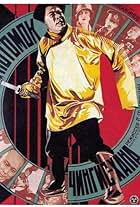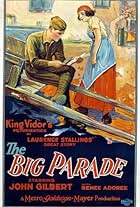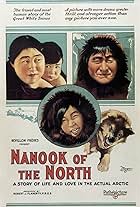PUNTUACIÓN EN IMDb
7,9/10
1,8 mil
TU PUNTUACIÓN
En 1910, la expedición británica a la Antártida, dirigida por el capitán Robert F. Scott, parte de Lyttleton (Nueva Zelanda) con el objetivo de convertirse en la primera en alcanzar el Polo ... Leer todoEn 1910, la expedición británica a la Antártida, dirigida por el capitán Robert F. Scott, parte de Lyttleton (Nueva Zelanda) con el objetivo de convertirse en la primera en alcanzar el Polo Sur.En 1910, la expedición británica a la Antártida, dirigida por el capitán Robert F. Scott, parte de Lyttleton (Nueva Zelanda) con el objetivo de convertirse en la primera en alcanzar el Polo Sur.
Argumento
¿Sabías que...?
- CuriosidadesIncluded among the "1001 Movies You Must See Before You Die", edited by Steven Schneider.
- Citas
Robert Falcon Scott: It is a terrible disappointment and I am very sorry for my loyal companions... Great God! this is an awful place.
- Créditos adicionalesJust before the end credits, a verse from Punch is reproduced: "So on their record, writ for all to know / The task achieved, the homeward way half-won / Though cold they lie beneath their pall of snow, / Shines the eternal sun."
- ConexionesEdited into 90° South
- Banda sonoraAbide With Me
Words by Henry F. Lyte (as Henry Francis Lyte)
Music by William H. Monk (as William Henry Monk)
Reseña destacada
Though devoid of innate sound or narration, one can almost hear the exaggerated "old timey" radio voice that might read the intertitles during a theatrical presentation of the film, a feeling amplified by some of the language used therein. Strictly speaking the very earliest motion pictures consisted of many short non-fiction pieces as the medium began to develop, it's safe to say that 'The great white silence' is surely among the earliest examples of a long-form feature constructed with such sensibilities resembling what modern viewers would recognize as a documentary. Indeed, this film occupies a rather singular place in cinema history, and not just because filmmaker Herbert Ponting is remarked as having been the first to take such equipment to Antarctica. The restoration and especially the colorization give a sense that the feature is more recent in origin than the 1910s (when it was filmed) or the 1920s (when it was released). The interspersing of intertitles with brief clips of footage almost evokes a work of fiction, an adventure flick perhaps not unlike those of G. W. Pabst or Arnold Fanck. And still, the occasional insertion of still photographs and rudimentary animations (e.g. Tracing a path on a map), and the substantial portion devoted to fauna, concretely emphasizes the nature of the movie. With all this said, one thing is unmistakably true: though 'The great white silence' belongs squarely to the silent era, it nonetheless bears terrific value and is deeply engrossing on its own merits.
Ponting's daring for venturing thusly to the southernmost continent cannot be understated, and some of the methods he used to capture video were rather inventive so early after the advent of cinema. To that point, he illustrates a fine eye for shot composition, and some of the footage is quite brilliant, such as when he shows us how the Terra Nova burst through ice floes. This is to say nothing of the gorgeous if desolate scenery of which we're given awe-inspiring eyefuls, fantastic looks at diverse wildlife and the animals that also set sail on the ship, and documentation of the hard work of the expeditionary crew around him. And here I must emphasize again: Ponting was the first filmmaker to take moving pictures at these furthest reaches of the globe. Excepting drawings and early still photographs, the visions to greet us were like nothing else before them. That alone makes this an essential viewing experience.
As the ultimate fate of Robert F. Scott's expedition is well known in history, 'The great white silence' becomes even more important as extant testimony to what they experienced. However, Ponting's feature isn't exclusively a record of disaster, but a joyful remembrance of how the crew lived, and what they saw (only turning more direct and somber toward the end). The intertitles and sequencing are generally characterized by light humor no matter what is being spotlighted at any given moment, and on that note, what we really have is a portrait of Antarctica so the "folks at home" could get a good idea of not just the British explorers' time on the ice, but also of how the continent truly looks and feels. One might reasonably say that the movie kind of comes across as a full-length equivalent of a one- or two-reel educational short, or at times a precursor to the nature films of National Geographic, as much as a slice of history.
As with any old movie, there are parts of this that haven't aged well as a reflection of antiquated attitudes or values. Please note, for example, the shocking name given to one of the expedition's companion animals; the "game" the men play with some of the diminutive wildlife doesn't look so innocent now as it presumably had more than 100 years ago. It's also fair to argue that the picture is imbalanced, seemingly spending more time photographing penguins and seals than the expedition. Still, one must take at face value what we are given; after all, everything about 'The great white silence' very emphatically speaks to a bygone era, and the relative simplicity of its technology and techniques - what Scott and his crew were working with, and what Ponting was working with or pioneered. When all is said and done this won't appeal to all comers, least of all those who don't generally care for silent films. Yet there's much to enjoy here, and whether one is a student of history, a cinephile, a lover of nature and animals, or just especially curious about the Terra Nova expedition, 'The great white silence' remains a worthy, engaging, well-made documentary, standing surprisingly tall decades later and still deserving of recognition.
Ponting's daring for venturing thusly to the southernmost continent cannot be understated, and some of the methods he used to capture video were rather inventive so early after the advent of cinema. To that point, he illustrates a fine eye for shot composition, and some of the footage is quite brilliant, such as when he shows us how the Terra Nova burst through ice floes. This is to say nothing of the gorgeous if desolate scenery of which we're given awe-inspiring eyefuls, fantastic looks at diverse wildlife and the animals that also set sail on the ship, and documentation of the hard work of the expeditionary crew around him. And here I must emphasize again: Ponting was the first filmmaker to take moving pictures at these furthest reaches of the globe. Excepting drawings and early still photographs, the visions to greet us were like nothing else before them. That alone makes this an essential viewing experience.
As the ultimate fate of Robert F. Scott's expedition is well known in history, 'The great white silence' becomes even more important as extant testimony to what they experienced. However, Ponting's feature isn't exclusively a record of disaster, but a joyful remembrance of how the crew lived, and what they saw (only turning more direct and somber toward the end). The intertitles and sequencing are generally characterized by light humor no matter what is being spotlighted at any given moment, and on that note, what we really have is a portrait of Antarctica so the "folks at home" could get a good idea of not just the British explorers' time on the ice, but also of how the continent truly looks and feels. One might reasonably say that the movie kind of comes across as a full-length equivalent of a one- or two-reel educational short, or at times a precursor to the nature films of National Geographic, as much as a slice of history.
As with any old movie, there are parts of this that haven't aged well as a reflection of antiquated attitudes or values. Please note, for example, the shocking name given to one of the expedition's companion animals; the "game" the men play with some of the diminutive wildlife doesn't look so innocent now as it presumably had more than 100 years ago. It's also fair to argue that the picture is imbalanced, seemingly spending more time photographing penguins and seals than the expedition. Still, one must take at face value what we are given; after all, everything about 'The great white silence' very emphatically speaks to a bygone era, and the relative simplicity of its technology and techniques - what Scott and his crew were working with, and what Ponting was working with or pioneered. When all is said and done this won't appeal to all comers, least of all those who don't generally care for silent films. Yet there's much to enjoy here, and whether one is a student of history, a cinephile, a lover of nature and animals, or just especially curious about the Terra Nova expedition, 'The great white silence' remains a worthy, engaging, well-made documentary, standing surprisingly tall decades later and still deserving of recognition.
- I_Ailurophile
- 12 ago 2022
- Enlace permanente
Selecciones populares
Inicia sesión para calificar y añadir a tu lista para recibir recomendaciones personalizadas
- How long is The Great White Silence?Con tecnología de Alexa
Detalles
Taquilla
- Recaudación en todo el mundo
- 85.780 US$
- Duración1 hora 20 minutos
- Mezcla de sonido
- Relación de aspecto
- 1.33 : 1
Contribuir a esta página
Sugerir un cambio o añadir el contenido que falta

Principal laguna de datos
By what name was El gran silencio blanco (1924) officially released in India in English?
Responde

















